Last Updated on October 11, 2022
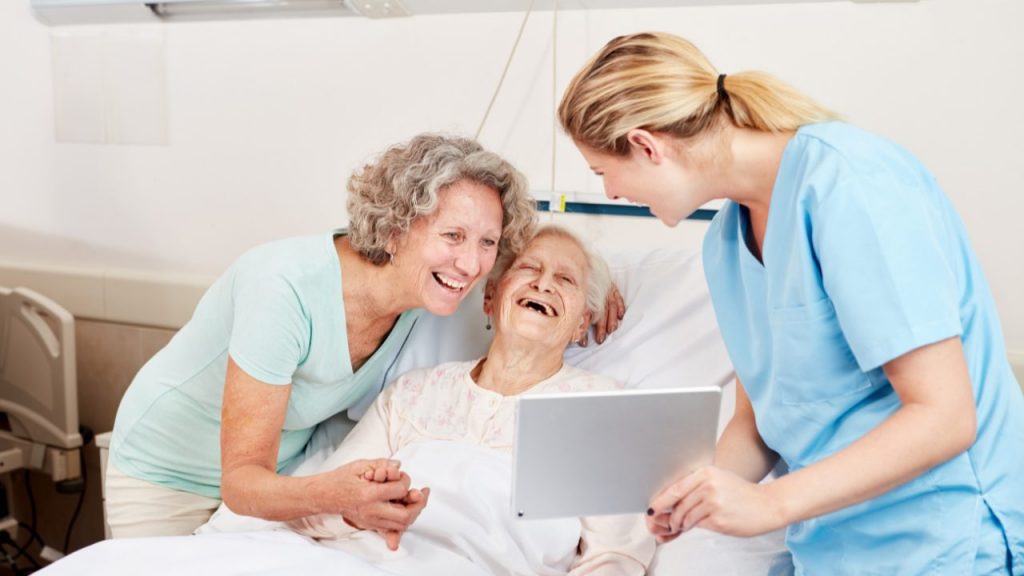
The Healthcare industry has undergone a noticeable transformation from paperless to mobile technology. Technology advancements have played a vital role in the ever-increasing efficiency of healthcare providers. From doctors to lab technicians, everyone in healthcare uses mobile devices and tablets to keep patient details, schedule appointments, send reports, and advise patients on the go.
The internet-connected mobile devices have changed healthcare forever. The innovation has increased the use of mobile for consulting and advising patients, and healthcare professionals are able to carry day-to-day tasks with more efficiency.
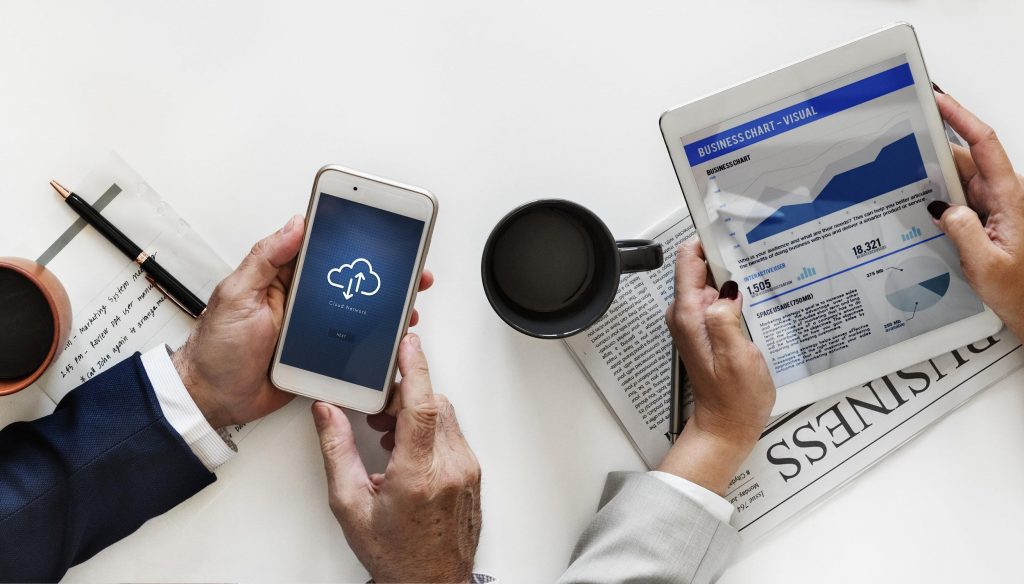
What is Mobile Device Management (MDM)?
MDM is the process of securing and protecting your mobile data at the enterprise level. The data is protected, monitored, and managed to secure mobile devices like laptops, tablets, mobile phones, and other internet-connected devices. MDM solutions focus on controlling and distributing the security policies of the organization to safeguard sensitive data. Mobile devices are becoming an essential part of businesses, and as more and more employees are using organization’s devices and networks, there is a need for robust MDM solutions.
MDM enables the IT team to secure the data and network from breach or intrusion. They monitor and manage company-owned devices, which include storage and backup of important data, controlling the use of external apps in the device, locating the device, using the network, and many more. The MDM security provider manages any external threats to the device or network.
With the rapid change in technology and ease of use, many corporations and organizations are opting for a mobile-first workforce. No wonder the increasing need for mobile devices has increased the chances of cyber attacks and threats. Hence, to simplify the management of corporate devices, many organizations use third-party MDM solutions to safeguard the organization’s data.
Why Does the Healthcare Industry Need MDM?
Mobile devices have expedited the process of healthcare services provided by professionals to patients. They can consult and offer quick treatment to the patients with the help of mobile devices. These devices are used by hospitals, doctors, employees, and surgeons. Hence the protection of the data in the phone is a paramount condition.
The use of mobile devices has improved the communication between patients and doctors. However, there is a need to secure the data in the devices to keep confidential records safe. Hence, it is the duty of the hospital IT team to safeguard the network and mobile devices as per the procedures and regulations laid down by the authorities. Many hospitals are now depending on MDM healthcare solutions to help them achieve these objectives.
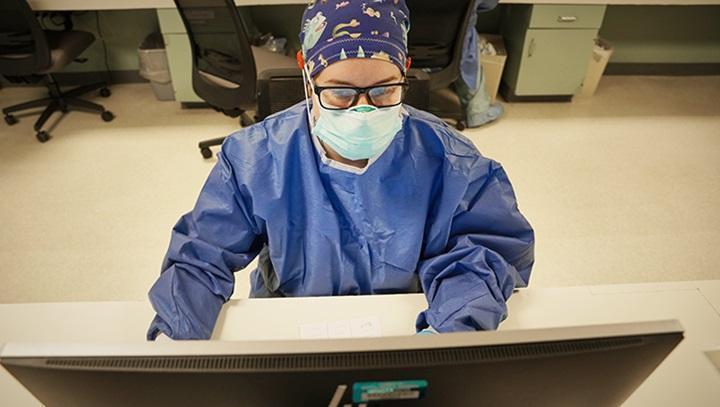
How MDM helps in safeguarding Healthcare Technology?
The idea behind MDM is to offer the right content to the user. In the Healthcare industry, user data is very important. The history of medicine and treatment are essential data for advising and consulting with patients. Since many healthcare professionals are using mobile devices for storing various types of information about a patient, it is important that the data is secured for the right access to the information.
Mobile devices and tablets are used by both medical and non-medical staff too. Since a large number of people in an organization are using devices and accessing data, patient privacy is in danger. In addition, organizations now deploy healthcare kiosks or self-service kiosks to provide a better patient experience. To avoid unexpected data breaches and device tampering from end-users, IT teams also need to establish security policies or enable device lockdown to protect these managed devices. Luckily, with MDM software, the Healthcare industry can secure mobile devices, company networks, the interest of patients and employees collectively.
Healthcare MDM tackles situations like security, data privacy, and unauthorized use of data by an employee or third-party user. It allows IT admins to assign device ownership and accessibility to individual users.
It also enables the user to get the right data and protect the data from unauthorized use. MDM solution providers control and monitor the device by defining who has them, what is in there, and how you can use them. The basic necessity for protecting the device is the use of the right controls and compliance are in place.
The next step is to avail professional MDM solutions for your organizational needs. Use the MDM solutions that offer all the security features that can be customized as per the devices used in the organization.
7 Essential Features of MDM solutions
Features are the backbone of the MDM solution that gives power to the organization. Therefore, the healthcare organization should understand the features offered by the MDM service provider and determine if they suit the organization’s needs.

#1 Compatible with multiple devices
The MDM solution should be able to encompass multiple devices and operating systems. There are a number of mobile devices used in the organization, and with the use of the ‘bring your own device’ BYOD policies, the MDM solution should be able to tackle all kinds of devices and operating systems in the organization to offer scalable options. In addition, the MDM tools should mention the OS they support for better transparency of the service.
#2 Complete security capabilities
The main purpose of deploying MDM solutions is to secure the data and network. Hence, the MDM tools or software should be able to offer high-quality and complete security features for safeguarding the interest of the organization. Your vendor should be able to protect your device remotely, a single platform should manage the data, and they should be able to provide features like data encryption, configuration, and access control.
#3 Access Control
The most important feature for MDM solutions is access control. Unauthorized and unauthenticated members of the organization should not have access to the information. For example, in a healthcare organization, many members have access to patient data, but MDM should be able to control the viewing and use of data as per the defined authentication level.
#4 Wireless Distribution
To deliver updates and configuration, the MDM solution provider must be able to do it wirelessly through over-the-air (OTA) distribution. In addition, the MDM vendors should be able to communicate with the devices remotely for sending out alerts, messages, and provisions in real-time. Therefore, several OTA capabilities should be offered by MDM solutions to mention what communications and settings can be sent wirelessly.
#5 Locating device
The MDM solution provider should be able to locate the device when it is lost or stolen. The technology offered by the MDM vendor should offer IT admins a real-time view of every company-owned device and perform remote lock to protect device data. This feature is particularly useful for transportation and logistics companies that need to keep track of their employees’ devices constantly.
#6 Remote wiping of data
In the situation of data theft or device breach, the vendor must be able to remotely access the device locally. There should be advanced features like wiping data of the device in extraordinary events. The modern MDM solution should be able to access the device with the latest technology or installed agent.
#7 Support and Troubleshooting
Support and troubleshooting are prime factors of any service contact. Devices may need some sort of troubleshooting, and MDM vendors should be able to provide support as quickly as possible. Sometimes it is not possible to offer hands-on support to the device. In this case, vendors should be able to offer remote troubleshooting to the users, which is a much more convenient and quick way to respond.
An intuitive MDM solution for the healthcare industry can be a comprehensive solution. Let us look at the benefits of a Mobile Device Management Solution for Healthcare.

5 Benefits of MDM Solution for Healthcare
Many members of the healthcare department use mobile devices for access and utilizing information on patients or treatment. However, with the increase in the number of users, they are hardly concerned about the security of the data in the device and how the device should be managed. Therefore, there is no way that healthcare technology can avoid the acceptance of MDM tools for the protection of data and also increase the productivity and efficiency of the users at the same time.
#1 Security security security
Mobile devices are prone to data theft. Users need a strong mobile device management tool that helps secure the data by laying out multiple strong security settings and policies. Mobile devices are protected with strong encryption, strong passcodes, and multiple layers of antimalware so that unwanted and unauthorized access can be controlled and monitored. However, Healthcare technology data is vulnerable and sensitive. Hence they need MDM for managing their mobile devices and safeguarding the interest of the patients.
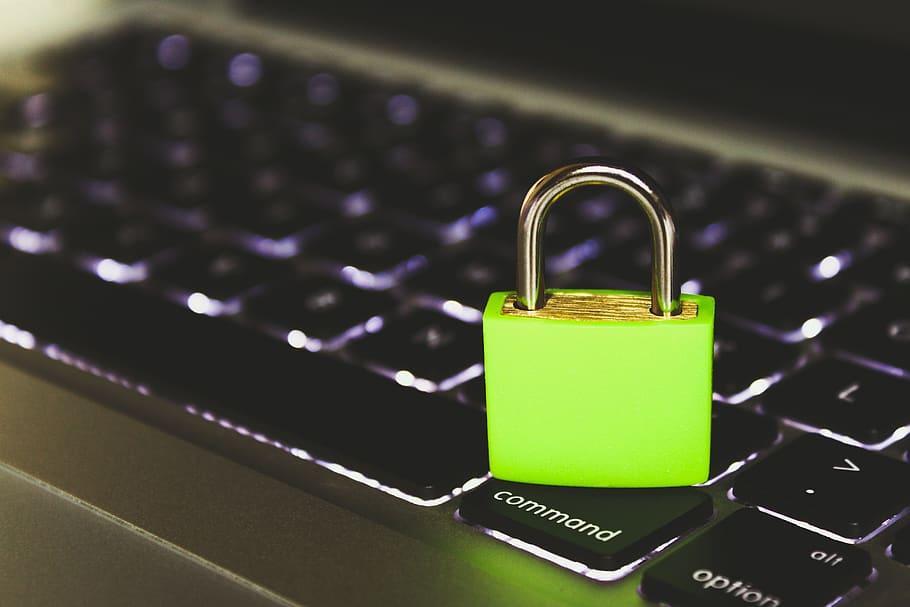
MDM comes with kiosk lockdown features that set the parameters for the use of devices safely. For example, it monitors the device with limited WiFi or cellular connection, restricts access to specific apps only, and keeps users away from unsecured networks. It also saves the device from cyber-attacks by controlling device networks.
#2 Effective and informed decision making
With the use of MDM, hospital IT teams can access the device remotely. And with the OTA distribution, they can update, install or publish the app, which is useful for the organization. In addition, the apps used in the devices are useful for healthcare providers, as they offer useful, relevant, and on-demand information about the patient.
Useful and relevant content is necessary for the caregivers to use the records to make lifesaving decisions for the patients. The apps in the device offer first-hand knowledge about the patients like medical history, treatment progress, notes by the professionals, and other data about the patients’ health. Quick access to information on time may save time and help the patients by assessing their health. In addition, MDM offers real-time conversation and resolution for the problem for better workflow within the organization.
#3 Improved Patient Experience
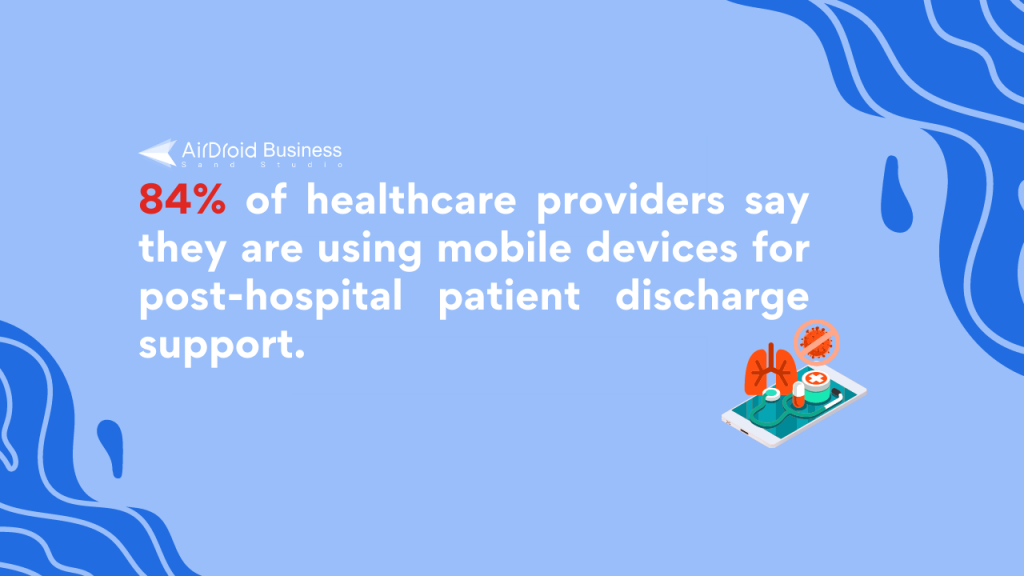
MDM-powered devices are free from bugs and hence offer speedy delivery of information to caregivers. It enables the healthcare providers to offer quick responses to the patient queries by accessing the right information at the right time. Caregivers get all the updated information about the patient on time. Moreover, they can guide the patients, offer help and monitor the progress in their health by using secured and managed enterprise apps.
MDM for healthcare offers real-time support from the IT team. Various members of the healthcare industry use apps with confidence. They support real-time monitoring and control by the IT department, which synergizes the patients and their caregivers. Treatment quality can be improved by synchronizing data about patients and offering quick responses to the patient’s health-related queries.
#4 Reduces device misuse
Health data are private and important for the patients as well as for the doctors and caregivers. Therefore, the protection of mobile devices in healthcare technology is very important. MDM helps the organization to reduce data theft and misuse rates by optimizing the security settings and policies. Mobile devices offer a great way to access the organizational data by the staff. But it also increases the risk of losing important data to cybercriminals. To minimize the loss and increase proficiency, an MDM solution is adopted.
Using the MDM software, healthcare technology can ensure that stored data is free from malware and safe. As a result, the staff at the hospitals cannot misuse the data and do not have access to information that is not relevant to their job. The IT department can also secure the device by restricting access, implementing two-factor authentication, and restricting access using website whitelisting. This saves the organization from device tampering and data loss.
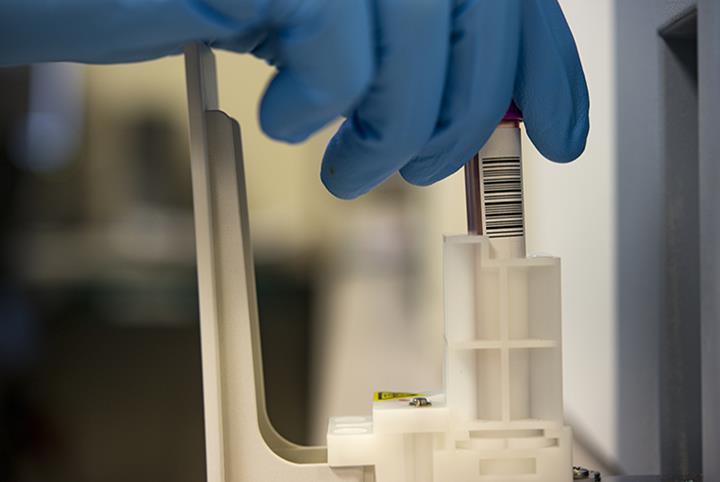
Mobile device management for healthcare technology focuses on the improved and enhanced productivity of caregivers. They are responsible for the better health of their patients. Hence by adopting the MDM solutions, they are no longer worried about the security of the information in the device. The modern MDM solution ensures that every device in the organization is profiled, separated from personal use, and the data is secured with strong security settings.
#5 Improve employee productivity
With a strong MDM policy, staff can stay focused and remain productive all the time. The use of enterprise apps offers patients immediate assistance when necessary. Self-service kiosks offer visitors a better experience and streamline daily workflows. Healthcare technology secures the data and network by using MDM.
The use of MDM software ensures the security of users’ data in accordance with prescribed IT regulations. The device and network are safeguarded as per the best IT practices by MDM. Controlled and secure device management ensures that hospitals and healthcare organizations make the most of medical technology and increase patient experience.
Author’s Bio: Steven Martin is a gadget enthusiast, who loves to be updated with the latest technology and trends, while in his free time he doesn’t forget to share his collaborative source of information with others as well with the help of HDMI technologies, a leading bucket of technical information.
